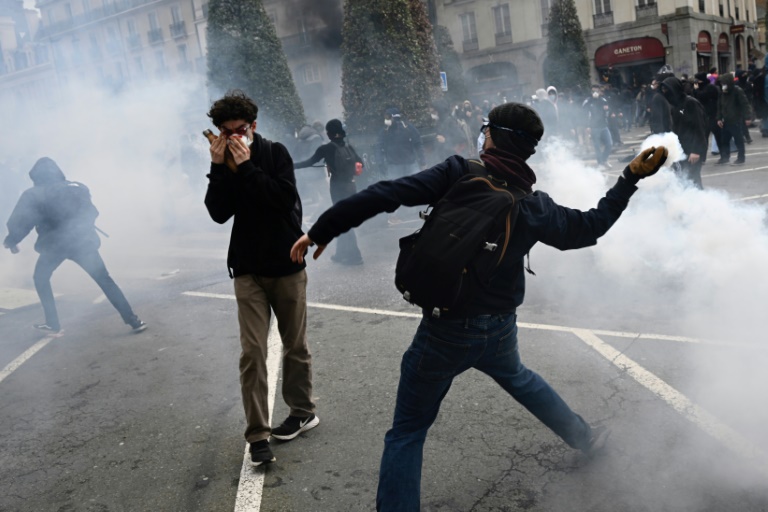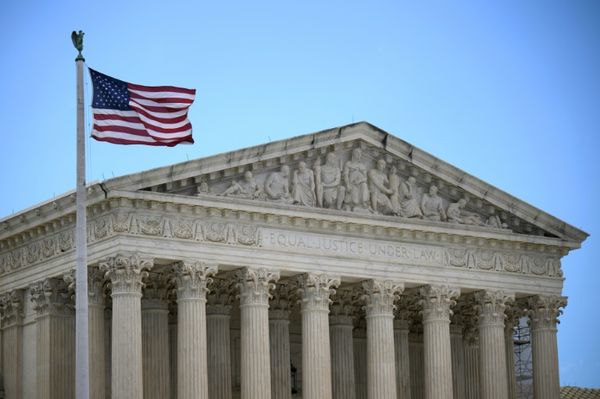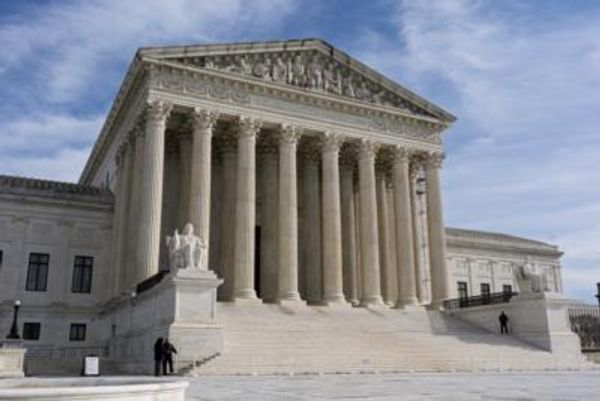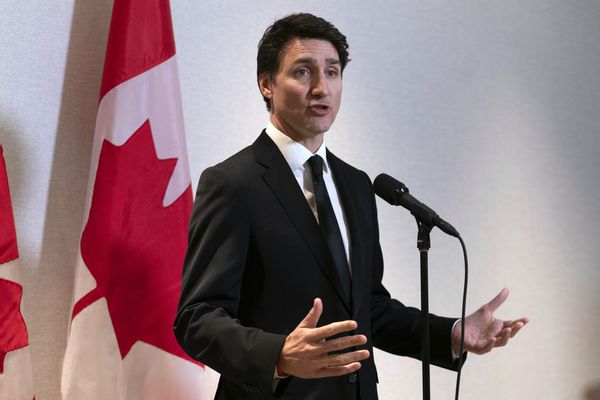
Paris (AFP) - French citizens protested and downed tools again on Thursday, with transport and refineries grinding to a halt as anger over a deeply unpopular pensions reform showed no sign of abating.
As thousands took to the streets in protest, planes landing at Paris airports faced potential fuel shortages, rubbish kept piling up, and questions hung over a looming state visit by King Charles III.
A defiant President Emmanuel Macron said Wednesday that he was prepared to accept unpopularity over imposing a bill raising the minimum retirement age from 62 to 64 because it was "necessary" and "in the general interest of the country".
Acting on Macron's instructions, Prime Minister Elisabeth Borne invoked an article in the constitution a week ago to adopt the reform without a parliamentary vote.
The government on Monday narrowly survived a no-confidence motion, but the outrage has spawned the biggest domestic crisis of Macron's second term.
Thursday's protests were the latest in a string of nationwide stoppages that began in mid-January against the pension changes.
In Paris, 61-year-old speech therapist Laurence Briens said she had joined thousands in the streets because she was angry with the way the reform had been adopted.
"It's as if we're being treated like children," she said.
School teacher Cedric Nothias, 46, held up a sign that read: "How does one teach democracy when Macron is trampling all over it?"
Airport fuel 'under pressure'
Thousands more people protested in the western city of Rennes, with one holding up a sign reading: "I want to grow old with my lover, not with my boss."
Most protesters in the city were peaceful, but several clashed with police forces, destroying shop fronts or throwing projectiles at the security forces, who responded with teargas and water cannons.
In the southern city of Marseille, Marine Danaux, 43, and her son were among thousands marching.
"I think it's important to bring him so he realises what's going on," she said.
A survey on Sunday showed Macron's personal approval rating at just 28 percent, its lowest level since the anti-government "Yellow Vest" protest movement in 2018-2019.
Earlier on Thursday, demonstrators briefly occupied the train tracks at the capital's Gare de Lyon train station, causing delays.
Protesters blocked road access to the Charles de Gaulle airport outside Paris, French television footage showed.
Half of all high-speed trains nationwide were cancelled, national railway operator SNCF said.
Paris municipal garbage collectors have pledged to uphold a rolling strike until Monday, as thousands of tonnes of rubbish rot on the streets.
Around a fifth of schoolteachers did not turn up for work on Thursday, the education ministry said.
Blockades at oil refineries were also to continue, with only one such TotalEnergies site in four working in the country.
The ministry of energy transition on Thursday warned that kerosene supply to the capital and its airports was becoming "critical".
The Directorate General of Civil Aviation has warned that its fuel stocks at the two main Paris airports are "under pressure", and urged planes to fill up during foreign stopovers.
'No legitimacy'
Spontaneous protests have broken out on a daily basis in recent days, leading to hundreds of arrests and accusations of heavy-handed tactics by police.
Amnesty International has expressed alarm "about the widespread use of excessive force and arbitrary arrests reported in several media outlets".
Paris police chief Laurent Nunez on Thursday said the security forces only detained people who gathered "with a view to commit violence".
While France's Constitutional Court still needs to give the final word on the reform, Macron said Wednesday that the changes needed to "come into force by the end of the year".
Backtracking on earlier comments that the crowds demonstrating had "no legitimacy", he said organised protests were "legitimate", but violence should be condemned and blockages should not impede normal activity.
The government has said the reform is necessary to keep the pensions system from slipping into deficit and to bring France in line with its European neighbours, where people typically retire later.
But critics say the changes are unfair for people in physically challenging jobs and women.
UK's King Charles III is due to arrive Sunday for his first foreign state visit as monarch.
French public sector trade unionists have warned they will not provide red carpets during the visit, but non-striking workers are expected to roll them out.







